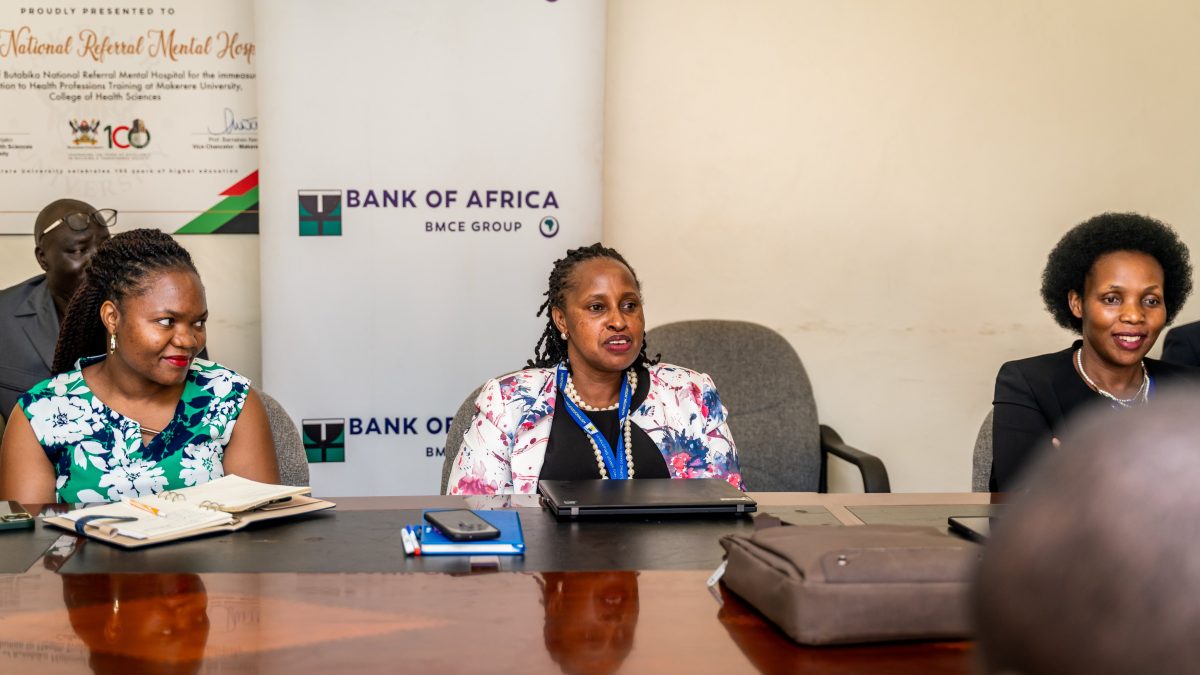
In Uganda, a nation celebrated for its rich cultural tapestry and entrepreneurial zeal, the path to growth and innovation for Small and Medium-sized Enterprises (SMEs) lies in the realm of digital transformation. In this article, we will delve into the pivotal role of digitization through mobile applications in empowering SMEs across Uganda, catalyzing their growth, and fostering a culture of innovation.
The SME landscape in Uganda
SMEs play a pivotal role in Uganda’s economic landscape. They encompass a wide array of businesses, ranging from agriculture to technology startups, fashion boutiques to local food vendors. SMEs account for a substantial portion of the country’s GDP, making them a critical force in shaping Uganda’s economic future.
Uganda’s 1.1 million MSMEs account for 80% of the country’s GDP and 90% of its private sector. A further 1.8 million informal businesses are run by women, youth and refugees.
However, SMEs in Uganda, like elsewhere in the world, face numerous challenges. Limited access to capital, inadequate infrastructure, and a lack of technological resources can hinder their growth potential. Enter mobile applications – the digital tools that are leveling the playing field for SMEs.
The Power of web applications
A mobile app (or mobile application) is a software application developed specifically for use on small, wireless computing devices, such as smartphones and tablets. They are designed to provide users with a seamless and interactive experience. In Uganda, the adoption of mobile apps by SMEs is catalyzing change in several ways:
1. Access to global markets:
One of the most significant advantages of web apps for SMEs is the ability to tap into global markets. Through e-commerce platforms and online marketplaces, Ugandan businesses can reach customers not only within the East African region but also across the globe. This expanded reach has the potential to transform local SMEs into international players.
-
Enhanced efficiency:
Web apps streamline various business processes, from inventory management to customer relationship management. They reduce manual work, minimize errors, and allow SMEs to operate more efficiently. This newfound efficiency translates into cost savings and improved profitability.
-
Financial inclusion:
Access to financial services is a challenge for many SMEs in Uganda. Mobile apps that provide digital banking and mobile payment solutions are extending financial inclusion to these businesses. Entrepreneurs can now manage their finances, access loans, and make transactions online, reducing the need for physical visits to banks.
-
Marketing and customer engagement:
Mobile apps enable SMEs to market their products and services more effectively. With tools like social media integration, targeted advertising, and email marketing, businesses can engage with their customers in real-time, building brand loyalty and trust.
-
Innovation and customization:
Mobile apps are highly customizable, allowing SMEs to tailor their digital presence to their unique needs and preferences. This flexibility encourages innovation and the development of niche markets, enhancing the diversity of products and services available in Uganda.
Success Stories from Uganda
To illustrate the transformative power of mobile apps for SMEs in Uganda, let’s look at a few success stories:
- Jumia Uganda: Jumia, an e-commerce giant operating in Africa, has revolutionized the retail landscape in Uganda. Through its user-friendly mobile apps Jumia & Jumia Food, Ugandans can shop for a wide range of products on their phones, from electronics to fashion and even food. Jumia has not only created a convenient shopping experience but has also provided a platform for local sellers to reach a broader audience.
2. SafeBoda: SafeBoda, a ride-hailing and delivery service, has become an essential part of urban life in Uganda. Their mobile app offers users a safe and reliable way to commute as well as send and get deliveries. By utilizing the app, SafeBoda has empowered both riders and drivers, contributing to the growth of the gig economy in Uganda.
3. Tugende: Tugende, a fintech company, is helping Ugandan SMEs access financing through their web app. They provide asset financing solutions to small business owners, allowing them to acquire the tools and equipment they need to grow their businesses. Tugende’s innovative approach is improving financial inclusion and boosting entrepreneurship.
Challenges and Opportunities
While web apps offer immense opportunities for SMEs in Uganda, there are challenges to address:
- Digital literacy: Not all SME owners and employees have the necessary digital skills to fully utilize mobile apps. Training and education programs are essential to bridge this gap.
- Connectivity and infrastructure: Access to reliable internet connections and infrastructure is still an issue in some parts of Uganda. Investment in improving digital infrastructure is crucial.
- Data security: As businesses increasingly rely on mobile apps, data security becomes a paramount concern. SMEs must invest in cybersecurity measures to protect sensitive information.
Cultural impact
The digital transformation of SMEs through mobile apps is not only reshaping the business landscape but also influencing Ugandan culture. Here’s how:
- Preservation of cultural heritage: Mobile apps are providing a platform for Ugandan artisans and craftspeople to showcase and sell their products and stories globally, preserving and promoting the country’s rich cultural heritage.
- Cultural exchange: Online platforms and marketplaces facilitate cultural exchange by connecting Ugandan entrepreneurs with international customers. This cultural exchange fosters understanding and appreciation of Ugandan traditions and creativity.
Therefore in conclusion, the digitization of SMEs through web apps is a game-changer for Uganda. It is enabling businesses to overcome traditional barriers and compete on a global scale. As Uganda continues to embrace digital technologies, the impact on culture, entrepreneurship, and economic growth is undeniable. To fully realize these benefits, it is essential for businesses, government, and the education sector to collaborate and ensure that the digital revolution reaches every corner of the country. In doing so, Uganda will not only strengthen its position as the “Pearl of Africa” but also as a digital hub for innovation and entrepreneurship in the East African region.










